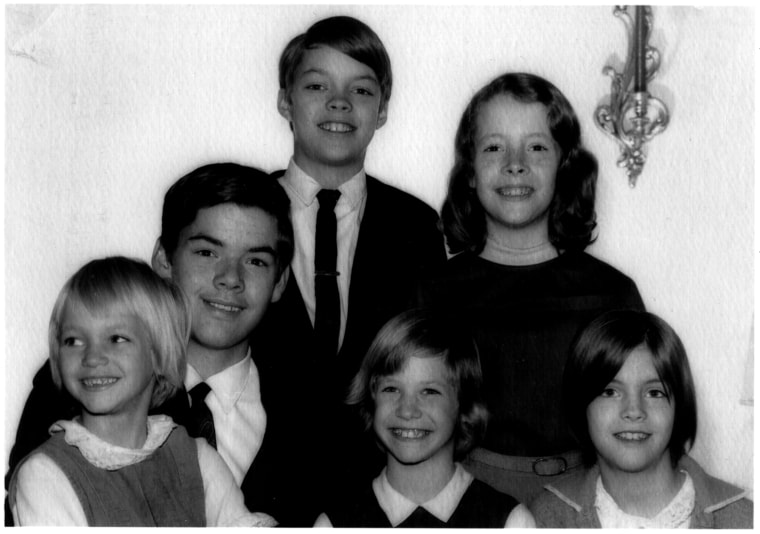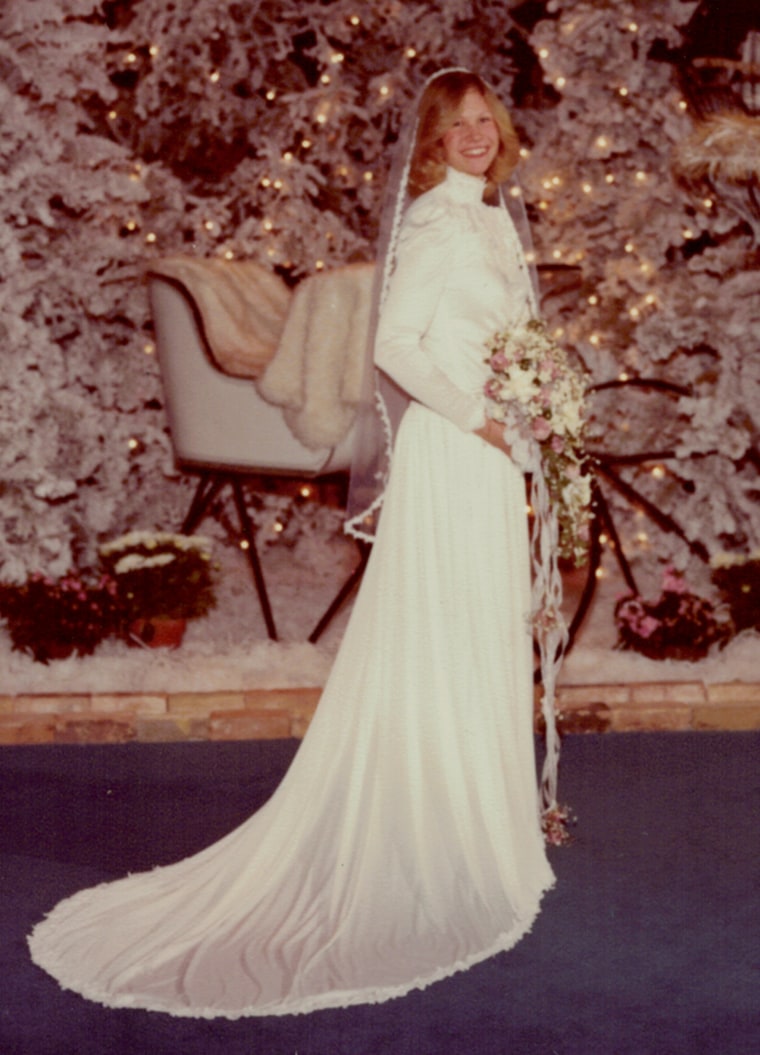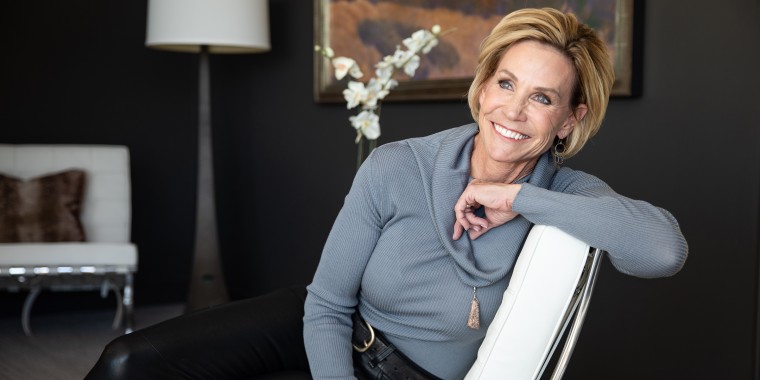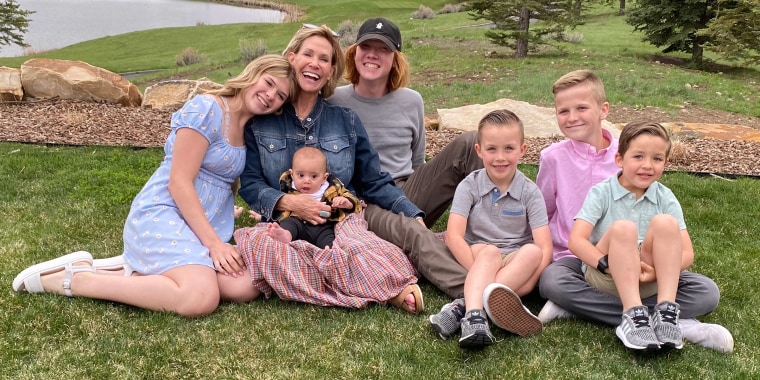At age 26, I found myself in the Mormon church food bank and government cheese line needing sustenance for my three children. I was struggling as a single mother with a deadbeat ex-husband who repeatedly forgot to send any child support. If you had asked me at that moment what I envisioned the future to look like, never in a million years would I have said that I would finally find true happiness in my 60s.
The concept of happiness was pretty foreign to me. I was a scrappy tough kid, raised in a Mormon family riddled with mental illness, chaos and abuse. My brothers, sisters and I were constantly hungry as our mother was in and out of the psych ward and eventually abandoned us, and my 191-IQ genius father was both delusional and suicidal. We learned to fend for ourselves, dumpster diving on occasion, and yet we still scrubbed up and showed up for church as if everything was white-picket-fence-peachy fine. Honestly, we really didn’t know any better since we were so young.
We learned to fend for ourselves, dumpster diving on occasion, and yet we still scrubbed up and showed up for church as if everything was white-picket-fence-peachy fine.
Oh, and did I mention that my parents were smoking and drinking Mormon swingers? And that when my mother left us, my father married her sister?

To escape from my dysfunctional family, I got married at 20 to a man I knew I didn’t love, but I hoped I would grow to over time. We married in the Salt Lake City Latter-day Saints temple (as expected by my parents). Within six years, I had three beautiful children, but then found myself divorced and in that cheese line. Determined to defy that depressing destiny, I went back to college to obtain my long overdue education and find a way to support my children.
I remarried two years later and that relationship proved to be quite loving and stable until I betrayed my husband by having an affair. Not able to bear the humiliation in our small town, I hightailed it back to Salt Lake City to find a new life, in denial that my disastrous childhood filled with parental abuse and neglect had destined me for a string of failed relationships and issues for my own children. But I plunged forward, focused on my career and survival. I had been a practicing physical therapist for eight years by this time, so I easily found another job, and only had my youngest daughter to finish raising. Happiness never really factored into my daily life as I was so busy hiding from my past and turning a blind eye to my present reality where my kids were all struggling with their own set of problems ranging from addiction to depression.

My ongoing solution to the emptiness within me was to remarry again, but the next time I outdid myself by finding a sociopath. He was a controlling churchgoing imposter who was paranoid and cheated on me. That marriage ended in a complete disaster and about did me in emotionally.
My religious life was equally disastrous. I found escaping my family as an adult was far easier than escaping the pull of my Mormon faith. There is tremendous pressure placed on Mormon women around the world. The constant striving for perfection, maintaining our homes and bodies as if they were temples, attending several church meetings and functions weekly, and abstaining from tea, coffee, tobacco and alcohol. My spiritual struggle continued through my failed marriages and affairs, culminating in a heap of shame and guilt that I felt for not measuring up. It took stepping outside of the church, meeting other non-Mormon people, traveling and professional help to finally help me realize I was not a bad person and that I deserved happiness.
I officially left the church in 2016 by resigning, but actually, I had not been involved since my last disastrous marriage ended in 2009. I suppose there are good things about organized religion and the LDS church for some, but it wasn’t good for me. I do feel a moral obligation to speak of the confusing and troubling cult-like concepts and rituals, which felt chauvinistic, oppressive, out of touch and even dangerous in today’s world. As a young woman preparing for marriage in the temple and making “eternal commitments,” there was no education about what goes on in these ceremonies, so I was completely shocked and scared by the whole ordeal. For many years, I believed that by having these negative thoughts and talking about my religion, I would be struck by lightning or go to hell.
In the end, I decided the church was hindering my own personal journey of growth, discovery and contemplation. I objected to the rhetoric, the unattainable goals for perfection, and what I perceived as being controlled out of fear.
Once away from the tunnel-vision perspectives and strict rules I had adhered to most of my life, I relished trying new things (admittedly, things I should have experienced much younger like barhopping, drinking and sex). My colleagues were young, intelligent, ambitious people — and none of them Mormon. For the first time, I realized that people outside of the church were actually happy and successful. I had been brainwashed to think that the only way to find true happiness and success in this life was through living the gospel.
My colleagues were young, intelligent, ambitious people — and none of them Mormon. For the first time, I realized that people outside of the church were actually happy and successful.
Without fear of church leaders and what my parents thought of me, I discovered happiness by living in the present — the here and now —rather than focusing time and energy worrying about what heavenly kingdom I would end up in the afterlife. My path to happiness was fraught with challenges but I pressed on. I confronted my mother for abandoning us, did intensive therapy, got my son through Alcoholics Anonymous and closed the gap with my children. I created boundaries with my mentally ill father, who I then discovered wasn’t really my father after all. I also decided to give love another chance and got remarried. Thankfully I was finally able to have a healthy relationship since I had done the work on myself and could be honest about my past.

At 63, I am happier and more content than I have ever been, and finally feel free. I still consider myself a spiritual person, but I am also that scrappy tough kid, too rebellious to be told how to live my life by a male-dominated church with scripture that seems like mythology.
My life is filled with so much richness at this point that sometimes I have to remind myself to remember my past, and all of the hard work it took to get here. I hope to never take my happiness for granted.
Read more of Diana Ragsdale's story in her new memoir, "Loose Cannons."
